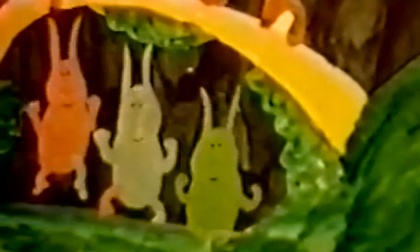
James Cameron’s directorial debut wasn’t The Terminator; it was Piranha II: The Spawning. Jaws wasn’t Steven Spielberg’s first film; it was his sixth, and M Night Shyamalan didn’t appear from nowhere as the director of The Sixth Sense; he’d helmed his second film – Christian kid flick Wide Awake, with Rosie O’Donnell as a nun – the year before. Such formative works were little known before IMDb became the de facto arbiter of pub arguments, but today they’re increasingly coming to light.
Back when Leonard Maltin’s books were the public’s only source of cinematic stats, film-makers were free to craft perfect resumés for themselves, beginning with their first hit and ending with their last. Early efforts were thrown to the wind as officially sanctioned filmographies used only the cream of a broad and motley crop.
Now, though, it seems no director is allowed to forget his or her roots. This summer alone, both Tim Burton and Lars von Trier have seen early directorial efforts come back to haunt them. The former’s bizarre, Japanese-influenced adaptation of Hansel And Gretel surfaced on YouTube last month, unseen since a lone Disney Channel airing in 1983. Burton is reportedly embarrassed by the film, but its pantomime grotesquery provides a fascinating backstory to his better-known work.
Von Trier’s juvenilia is even stranger. The two-minute animated short The Trip to Squash Land: A Super-Sausage Adventure, made by an 11-year-old Lars in 1967, sees a group of rabbits go on an underwater journey with an anthropomorphised sausage. A title card at the conclusion of the film does recall von Trier’s later work, but only by accident – “Slut” being Danish for “The End”.
These primitive films may interfere with an auteurist vision of every director as the master of their own domain, but they also shine a light on the evolution of an artist. After all, The Terminator is a great film – but it’s even better once you’ve seen Piranha II: The Spawning.

